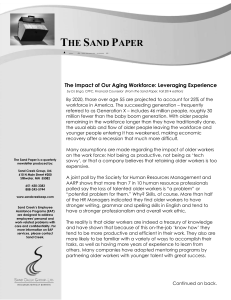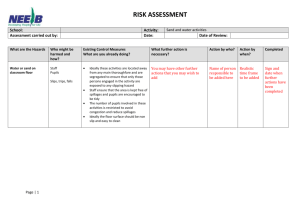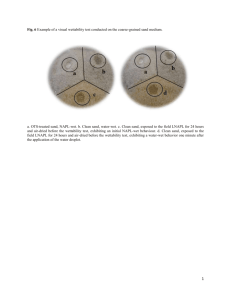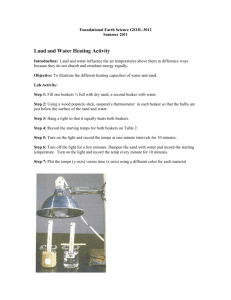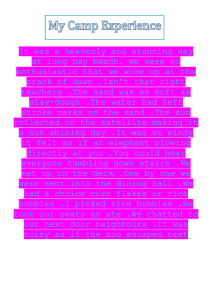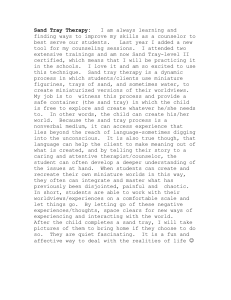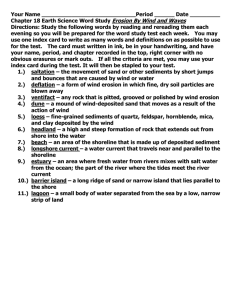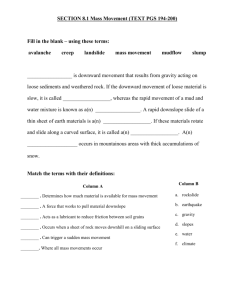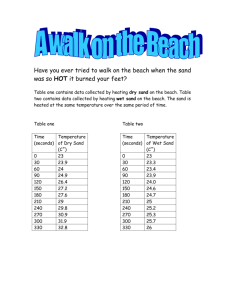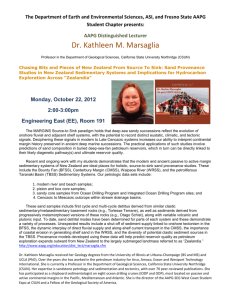Why I Choose Paper Books Over Digital Print
advertisement
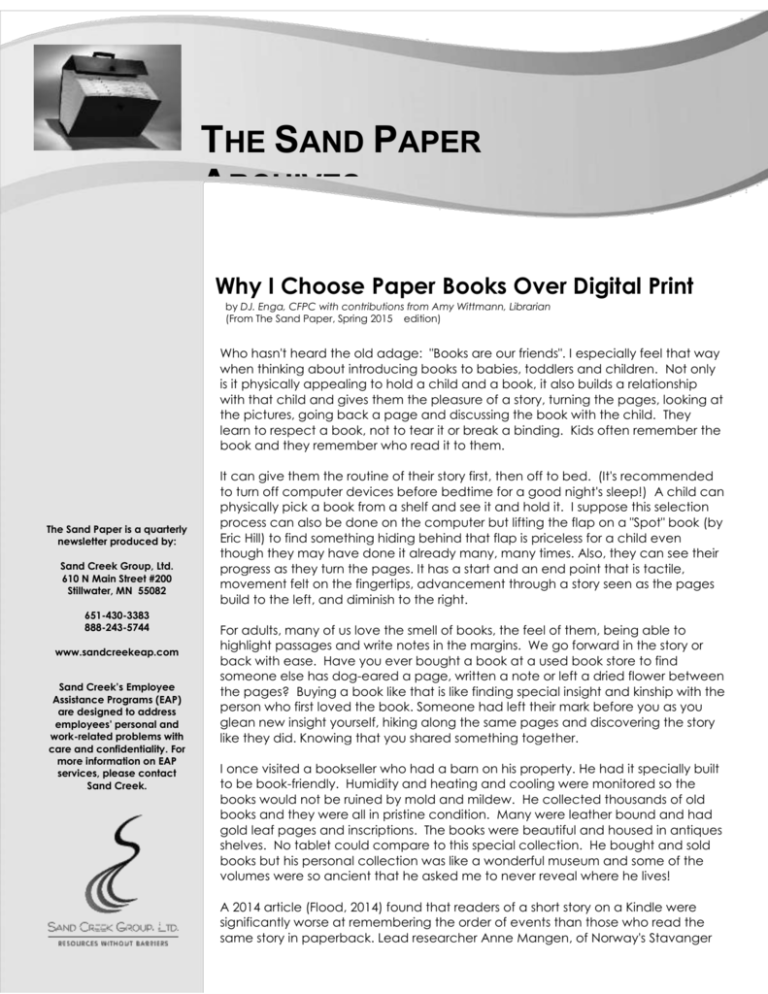
THE SAND PAPER ARCHIVES Why I Choose Paper Books Over Digital Print by DJ. Enga, CFPC with contributions from Amy Wittmann, Librarian (From The Sand Paper, Spring 2015 edition) Who hasn't heard the old adage: "Books are our friends". I especially feel that way when thinking about introducing books to babies, toddlers and children. Not only is it physically appealing to hold a child and a book, it also builds a relationship with that child and gives them the pleasure of a story, turning the pages, looking at the pictures, going back a page and discussing the book with the child. They learn to respect a book, not to tear it or break a binding. Kids often remember the book and they remember who read it to them. The Sand Paper is a quarterly newsletter produced by: Sand Creek Group, Ltd. 610 N Main Street #200 Stillwater, MN 55082 651-430-3383 888-243-5744 www.sandcreekeap.com Sand Creek’s Employee Assistance Programs (EAP) are designed to address employees' personal and work-related problems with care and confidentiality. For more information on EAP services, please contact Sand Creek. It can give them the routine of their story first, then off to bed. (It's recommended to turn off computer devices before bedtime for a good night's sleep!) A child can physically pick a book from a shelf and see it and hold it. I suppose this selection process can also be done on the computer but lifting the flap on a "Spot" book (by Eric Hill) to find something hiding behind that flap is priceless for a child even though they may have done it already many, many times. Also, they can see their progress as they turn the pages. It has a start and an end point that is tactile, movement felt on the fingertips, advancement through a story seen as the pages build to the left, and diminish to the right. For adults, many of us love the smell of books, the feel of them, being able to highlight passages and write notes in the margins. We go forward in the story or back with ease. Have you ever bought a book at a used book store to find someone else has dog-eared a page, written a note or left a dried flower between the pages? Buying a book like that is like finding special insight and kinship with the person who first loved the book. Someone had left their mark before you as you glean new insight yourself, hiking along the same pages and discovering the story like they did. Knowing that you shared something together. I once visited a bookseller who had a barn on his property. He had it specially built to be book-friendly. Humidity and heating and cooling were monitored so the books would not be ruined by mold and mildew. He collected thousands of old books and they were all in pristine condition. Many were leather bound and had gold leaf pages and inscriptions. The books were beautiful and housed in antiques shelves. No tablet could compare to this special collection. He bought and sold books but his personal collection was like a wonderful museum and some of the volumes were so ancient that he asked me to never reveal where he lives! A 2014 article (Flood, 2014) found that readers of a short story on a Kindle were significantly worse at remembering the order of events than those who read the same story in paperback. Lead researcher Anne Mangen, of Norway's Stavanger University, concluded that "the tactile feedback of a Kindle does not provide the same support for mental reconstruction of a story as a print pocket book does." The tactile experience of a book aids this process, from the thickness of the pages in your hands as you progress through the story to the placement of a word on the page. Mangen hypothesizes that the difference for Kindle readers, "Might have something to do with the fact that the fixity of a text on paper, and this very gradual unfolding of paper as you progress through a story is some kind of sensory offload, supporting the visual sense of progress when you're reading." Reading an old-fashioned novel is also linked to improving our sleep. When many of us spend our days in front of computer screens, it can be hard to signal to our body that it's time to rest. By reading a paper book about an hour before bed, your brain enters a new zone, distinct from that enacted by reading on an ereader. My kids will be inheriting many books when I die. The same Children's books that are barely holding together but were read to me by my grandmother and/or parents, I can never part with them. Books have touched me in some way have helped me get through a tough time in my life. Books have made me laugh and made me cry. Books I have on hand when friends visit and ask for a recommendation. I'll buy several copies of favorite books just to give them away to my friends. Being able to hand something over to them, rather than pointing them to a web address or link, seems more gratifying. Source: A. Flood, 2014, August 19th, “Readers Absorb Less on Kindles than Paper Study Finds,” Retrieved from http://www.theguardian.com 610 N Main Street #200 Stillwater, MN 55082 651-430-3383 888-243-5744 www.sandcreekeap.com
